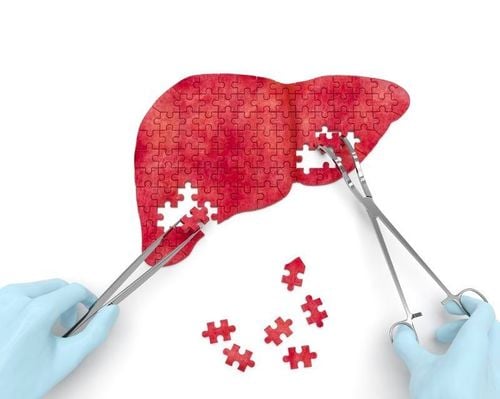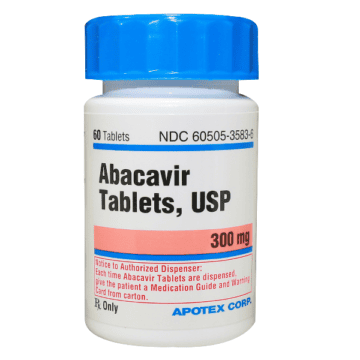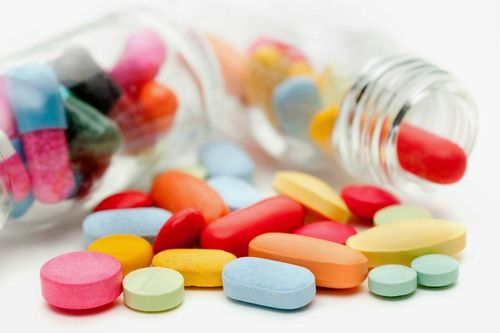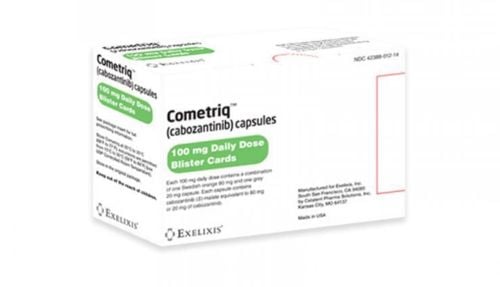This is an automatically translated article.
Floxuridine is a prescription medicine used in the treatment of cancer. So what is Floxuridine and how is it used?
1. What is Floxuridine?
The drug Floxuridine is an antineoplastic agent, which works by inhibiting DNA and RNA synthesis. Without these essential compounds, cancer cells cannot grow and divide, which causes cancer cells to die.
2. How to take Floxuridine
Floxuridine is injected through an artery or a vein, directly into the liver via an infusion pump. The drug may be used alone or together with other medicines.
3. Possible side effects of the drug Floxuridine
The most common or important side effects of Floxuridine include:
Leukopenia or neutropenia: White blood cells (WBCs) are important for fighting infections. While being treated with Floxuridine, your white blood cell count may drop, putting you at higher risk of infection. It's best to tell your doctor or nurse right away if you have a fever (temperature higher than 38°C), sore throat or cold, trouble breathing, cough, burning when urinating, or pain that doesn't heal. Tips to prevent infection while using Floxuridine:
Wash your hands thoroughly to prevent the spread of infection. Avoid going to crowded places and people who are sick. Do not handle pet waste. Keep all cuts or scrapes clean. Shower daily and perform regular oral care. Do not trim cuticles or ingrown nails. You can paint your nails, but don't wear fake nails. Ask your doctor before scheduling dental appointments or procedures. Ask your doctor before you or someone living with you get vaccinated. Anemia: Red blood cells are responsible for carrying oxygen to the tissues in your body. When your red blood cell count is low, you may feel tired or weak. Tell your doctor if you feel short of breath or have chest pain. If your red blood cell count is too low, you may receive a blood transfusion. Thrombocytopenia: Platelets help with blood clotting, so when the number of these cells is low, the person has a higher risk of bleeding. Tell your doctor if you have any excessive bruising or bleeding, including nosebleeds, bleeding gums, or blood in your urine or stools. If the platelet count becomes too low, you may be given a platelet transfusion. Diarrhea: Your doctor may recommend medications to relieve diarrhea. Also, adjust your diet, avoiding raw fruits, vegetables, whole-grain breads, grains, and seeds. Fiber is soluble in some foods and absorbs fluids, which can help relieve diarrhea. Drink 8-10 glasses of non-alcoholic, caffeine-free water each day to prevent dehydration. Mouth ulcers (Mucositis): Some cancer treatments can cause sores or sores in the mouth and in the throat. Tell your doctor if your mouth, tongue, inside of your cheeks or throat become white, sore, or painful. Performing oral care regularly can help prevent or control canker sores. If mouth sores become painful, your doctor or nurse may recommend pain medication. Fatigue: Fatigue is very common during cancer treatment and is a feeling of exhaustion that does not subside with rest. During cancer treatment and for a while afterward, you may need to adjust your activity schedule to control fatigue. Plan time to rest during the day and save energy for more important activities. Exercise can help fight fatigue; A daily walk with a friend can help relieve fatigue. Talk to your doctor for helpful tips on how to deal with this medication side effect.
Nausea or vomiting: Talk to your doctor so they can prescribe medication to help control nausea and vomiting. In addition, dietary changes may be helpful. Avoid foods that are greasy, spicy or acidic (lemon, tomato, orange). Call your doctor if you feel light-headed or dizzy at any time. Less common, but important side effects of Floxuridine include: Liver toxicity, heart problems, bleeding or tearing of the intestinal wall, bleeding... Contact your doctor for timely treatment.
4. Effects of Floxuridine on fertility
Exposure of the fetus to Floxuridine can cause birth defects, so it is not recommended to become pregnant while using this medicine. Effective birth control is essential during treatment. Even if your period has stopped, you may still be able to conceive.
You should consult your doctor before breast-feeding while taking Floxuridine.
Above is all the important information about the drug Floxuridine. If you have any further questions, you can contact your doctor for appropriate indications.
Please dial HOTLINE for more information or register for an appointment HERE. Download MyVinmec app to make appointments faster and to manage your bookings easily.













